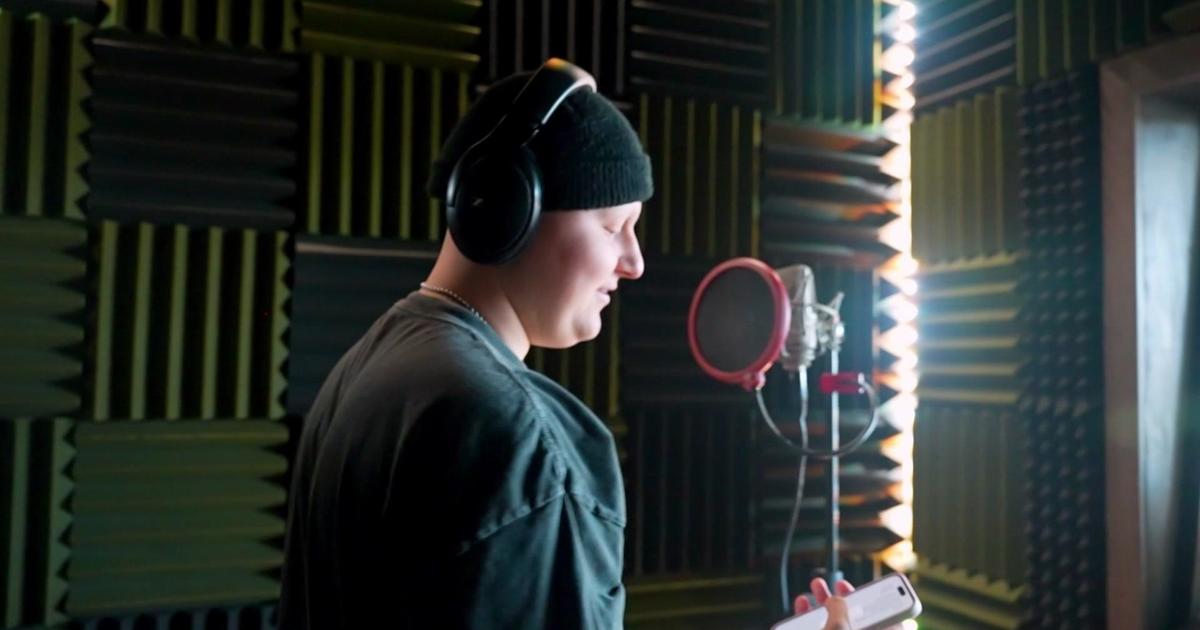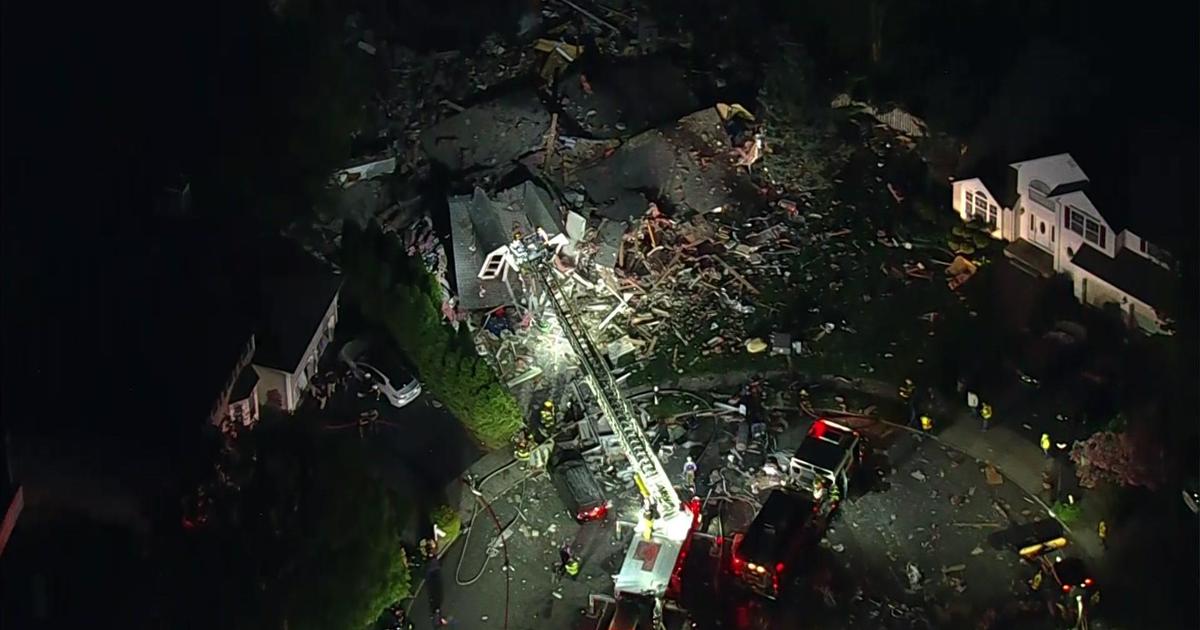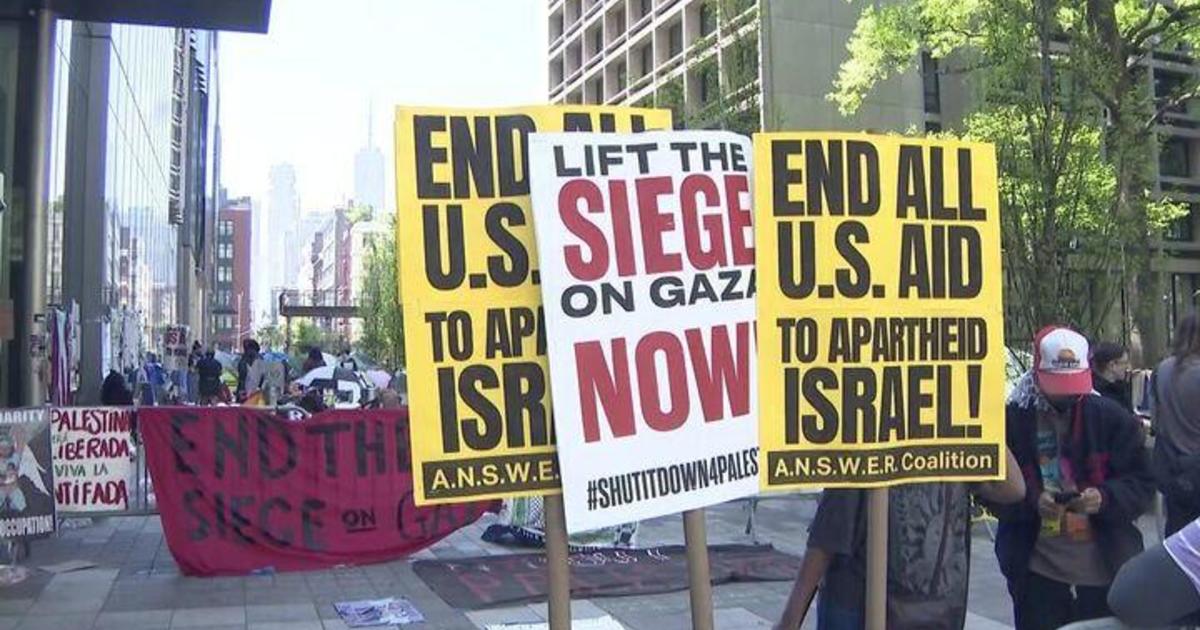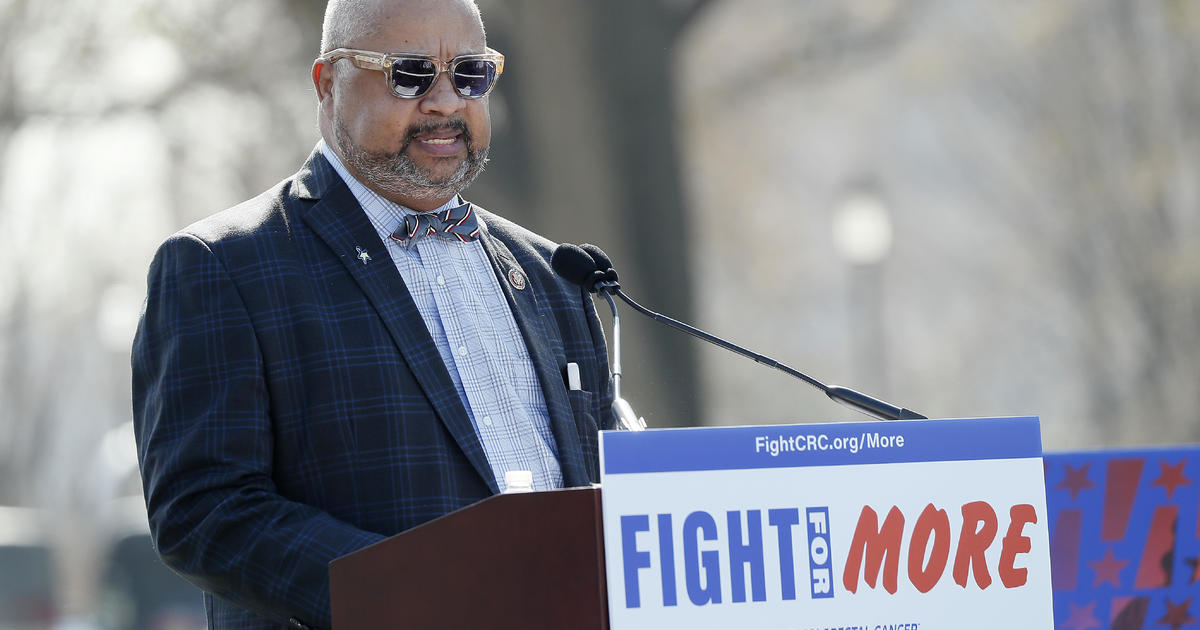Experts Expect Gas Prices To Reach Highs Not Seen Since 2014, But Not Necessarily Caused By Colonial Pipeline Shutdown
CLARK, N.J. (CBSNewYork) -- Experts say a gas shortage due to the Colonial Pipeline shutdown is unlikely in the Tri-State Area, but prices are going up.
There have been long lines at gas stations from Virginia to Florida with drivers topping off their tanks and even emptying gas pumps at thousands of stations across the southeast.
"I think it's the customers panicking and just overbuying, just like they did [with] the toilet paper a year ago," said Dave Mangold, who works in the Bronx.
Mangold was met with a much different scene at a Gulf gas station in Williston Park, Long Island.
"I was delighted not to see a line," he said.
Although, he did see a sign noting of a $20 limit.
"I don't have that much left in the tanks, and I don't know when my next delivery's gonna be 'cause nobody can give me an answer," gas station owner Rocky Sarno told CBS2's Jenna DeAngelis.
Sarno is hoping for a delivery Thursday. In the meantime, he's trying to share gas amongst customers at his small neighborhood station, something he hasn't had to do in nearly a decade.
"Basically, Sandy was the last time we had the issue, but that was Mother Nature. This is not Mother Nature," he said.
Rather, it's the result of a ransomware attack at Colonial Pipeline, which sends oil from Texas to New Jersey.
"Of course there's a very big concern. Gas prices are going up," Williston Park resident Olga Sekulich said.
Watch Meg Baker's report --
Clark resident Tammy Sterns says she was nervous when she heard about a possible gas shortage.
"I had $20 in cash and I was like, you know what, let me just add a little bit more and see how long that gets me, but I'm trying not to freak out," she told CBS2's Meg Baker.
Gov. Phil Murphy says that's human nature, but there is no need for panic buying.
"I don't blame people for that. You saw early on in the pandemic people hoarding toilet paper," he said.
Right now, there is no plan to ration gas. The governor says he is in touch with the federal government on the Colonial Pipeline shutdown.
"We don't like seeing the prices go up for whatever reason, but at the moment, at least, we don't have a supply issue. That could change if this is extant for a long period of time," he said.
It's the same in New York, where the state says it continues to receive fuel from sea and truck deliveries.
The average price of gas in New Jersey is $3.04. In New York and Connecticut, it's $3.03. But this price rise was anticipated, even without the pipeline disruption.
AAA says expect prices to increase as investors anticipate a busy summer driving season as more people get vaccinated.
"With increased demand comes increased price, and also June 1 is hurricane season. If you get a major storm hitting the breadbasket of oil and gas drilling and refining and distribution infrastructure, that can set prices higher," said Robert Sinclair, with AAA.
Sinclair says to expect gas prices to be the highest they have been since 2014.
Meanwhile, an old viral video prompted the U.S. Consumer Product Safety Commission to send a series of tweet saying in part, "Do not fill plastic bags with gasoline" and "If you know someone who is thinking about bringing a container not meant for fuel to get gas, please let them know it's dangerous."
It's a sign of things getting out of control in some states where supply is low.
"Hoarding does not make things better," Secretary of Transportation Pete Buttigieg said.
The situation, however, is expected to get better now that Colonial Pipeline has turned service back on. It just may take several days to get there.
Meanwhile, Murphy says prices in New Jersey could also be on the rise because of a lack of drivers for fuel trucks, another employment challenge going on in the state.
CBS2's Meg Baker contributed to this report.



